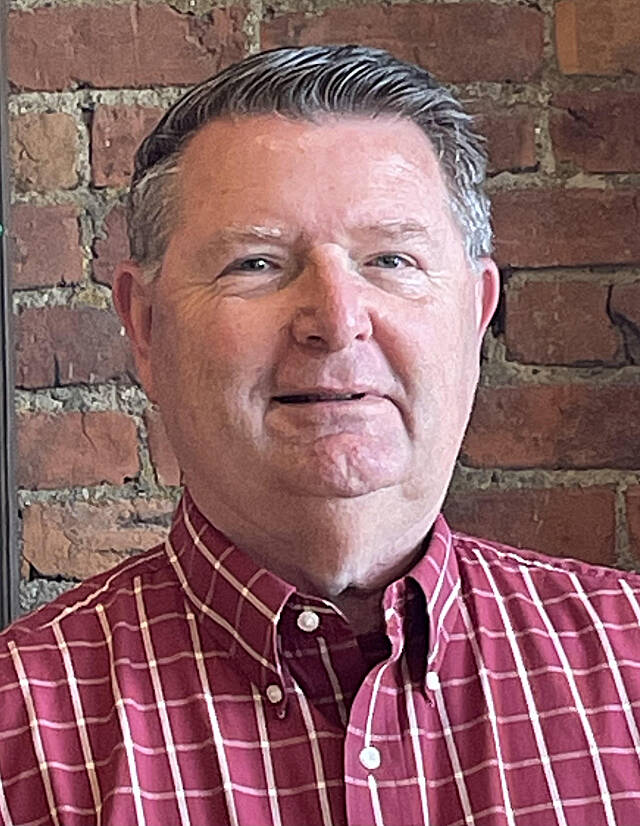By Ron Friesen / Herald Forum
“Why should my kid be in your band or orchestra? They won’t make a living doing that, will they?” Questions like these from skeptical parents made me shudder at first, but ended up being the best thing to happen to this music teacher. I had to answer.
The answers I got in college were not helpful. Hardworking Scandinavian farmers in Stanwood were not impressed when I explained how music helped their kids with math, music helped people appreciate the arts, or that music was an important part of a well-rounded education. All this was true. But it did not answer their question which really was, “How will taking this class help my kid’s life?” That’s what parents really want to know.
The answer is there, but it is so buried in schedules, state graduation requirements, out-dated teaching materials and a century-old, decaying system that parents and students struggle to find the answer. It’s there. Every good teacher understands that we don’t just teach a subject; we teach a person. That is where the answer starts.
In music classes, the answer to parents was, “You are right. They probably won’t.”
I had to agree that learning skills to read music, sing on pitch, count measures, or how to make a good sound on an instrument are all important, but years later, these skills will largely be lost. So what is the point? It turns out that the underlying life skills learned are permanent, and these are the most important skills of all. These are the life skills which I now call “permanent learning.”
How do we learn any new skill? We have to pay attention and learn the steps. We have to practice to improve. We have to try, and try, and try again and never give up. When we get stuck, we have to look for solutions, not just sit there. We learn how to solve problems ourselves, and if unable, we learn where to look for help. All the time during this experience, we gain confidence in ourselves.
I had a beginning student who really wanted to play trumpet, but struggled during try-outs. Trombone would have been a better choice at the time, and that is what I recommended. When I explained trumpet would be a very difficult choice he said, “Well then, that just means I will have to work harder than everyone else.” A sixth-grader, he did, and ended up being one of the best trumpet students I had! Determination and confidence just grew and grew. Permanent learning!
Responsibility and accountability are also important to life skills. In a band class with one teacher and 60 students with noisemakers, who are the students always accountable to? The teacher? Are you kidding? One teacher is going to catch and correct every students’ errors? No way! Students are responsible and accountable to themselves and each other first and foremost. When everyone is playing and one clarinet plays a wrong note, but the others all play the right note, what happens? The clarinets all sound bad because one goofed up. Oops! Accountability!
Instead of the teacher correcting every mistake (which is impossible), students learn to help each other. Each person wants to do their best because it helps the section, and eventually everyone look good. It isn’t about one individual doing better than everyone else. It is about everyone helping each other do their best, because the group does its best only when each does their best. I can’t tell you how many times a student either corrects themselves, or a neighbor discretely leans over to show someone the right fingering. Students are not simply learning the right fingering. They are learning how to practice and prepare. They are learning responsibility and accountability in a group effort. They are learning what it takes to perform under pressure.
Our world is changing at a pace nearly impossible to keep up with. The app or interface we learn today might last for about five years or less, which makes permanent learning more important than ever. Permanent learning is learning how to learn, learning how to think critically, learning accountability and responsibility, learning how to prepare, and learning how to perform.
Unfortunately, we only hear about math and reading scores to evaluate learning. Why? Because it’s easy! There are no data yet for permanent learning, except for negative indications on our streets and in our jails. The most important learning is extremely difficult to measure, so we keep taking the easy way out.
Do we want our kids to have critical life skills and permanent learning? We have a lot of work to do to figure this out. In the mean time, there is a lot of permanent learning going on in your school’s music classes. It is well worth checking out.
Ron Friesen is a longtime Marysville resident, a retired music teacher and community and church musician and is committed to community improvement.
Talk to us
> Give us your news tips.
> Send us a letter to the editor.
> More Herald contact information.

























